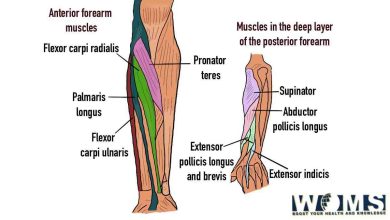Healthy ways for weight gain

This is a cause for concern because being underweight can be just as harmful to one’s health as being obese. Furthermore, even if you are not clinically underweight, you will aspire to increase muscle. The same concepts apply whether you simply want to improve muscle mass or you are clinically underweight. This article describes a simple approach to healthy ways for weight gain.
Even though weight gain can be difficult for some people, the process does not have to be complicated. Ignore the pro-science and simplify your health goals by concentrating your efforts on the practices that will make a difference.
An underweight person is more likely to suffer from health problems such as:
- Infertility
- Weak immune system
- Delays in development
- An increased risk of complication during surgery
- Poor nutrition
4 Golden Principles on Healthy Ways for Weight Gain
For weight gain, just do it right by following these lifestyle strategies:
1. Consume a lot of food rich in protein
Protein is the most important factor in achieving a healthy weight. However, protein is the building block of muscle, and an absence of it will lead to a deficiency of protein. A high-protein diet, according to studies, allows much of the additional calories to be converted into muscle during periods of overeating.
However, Aim for 0.7-1 g of protein per pound of body weight (1.5-2.2 g of protein per kilogram) if you’re aiming to gain weight. If your calorie intake is extremely high, you can even go higher. Dairy products, Meats, eggs, legumes, nuts, fish, and many other high-protein foods are examples. If you don’t get enough protein in your diet, protein supplements like whey protein can help.
2. Strengthen Your Body By Lifting Heavy Weights
Lifting weights is essential for ensuring that excess calories are directed to strengthen your muscle mass rather than your fat cells. 2-4 times a week, go to the gym and lift weights. Lift heavy and try to escalate the volume and weights. Consider hiring a professional personal trainer to assist you to get started if you’re completely out of shape or new to training.
If you have bone difficulties or any other medical issue, see a doctor. For the time being, it’s definitely best to avoid cardio and concentrate solely on the weights. It’s great to perform some exercise to improve your health and well-being, but don’t overdo it to where you’re burning up all the extra calories you’re consuming.
3. Consume High-Energy Foods And Season With Sauces, Spices, And Condiments.
Moreover, eating entire, single-ingredient foods is critical. The issue is that these foods are more filling than processed junk foods, making it more difficult to consume adequate calories. This can be aided by using a variety of spices, sauces, and condiments. The more delicious your meal is, the easier it is to consume a large quantity of it.
Here are some foods that are high in energy and good for weight gain:
- Peanuts, Almonds, macadamia nuts, and other nuts
- Dates, prunes, Raisins and other dried fruits
- Whole milk, full-fat yogurt, cheese, and cream are examples of high-fat dairy.
- Extra virgin olive oil and avocado oil are good fats and oils.
- Oats and brown rice are examples of whole grains.
- Meat: Choose fattier cuts of chicken, beef, hog, lamb, and other meats.
- Potatoes, sweet potatoes, and yams are examples of tubers.
- Peanut butter, Dark chocolate, granola, avocados, coconut milk and trail mixes are some of my favorite things.
Because many of these foods are filling, you may feel compelled to eat more even if you’re already full. If weight gain is a priority for you, avoiding eating a lot of vegetables is a wise option. Simply said, there is less room for high-energy items. It’s fine to consume whole fruits but stick to bananas and other fruits that don’t need much chewing.
4. Consume Fat And Carbs
When trying to lose weight, many people try to restrict fat or carbs. If you want to gain weight, this is an awful choice because it will make it more difficult to consume enough calories. Furthermore, if you want to gain weight, eat a lot of high-carb and high-fat foods. At each meal, eat enough carbohydrates, protein, and fat. Intermittent fasting is also not a good idea. This is beneficial for health and weight loss but it makes it much more difficult to consume enough calories to gain weight.
Consume at least 3 meals each day, and wherever possible, include energy-dense snacks.
More Tips on healthy ways for weight gain
Here are more tips for weight gain:
- Water should not be consumed before to a meal. This can cause your stomach to fill up, making it difficult to consume enough calories.
- Eat more frequently. If feasible, sneak in an extra snack or meal before going to bed.
- Milk should be consumed. To receive more high-quality protein and calories, simply drink whole milk to relieve your thirst.
- Weight gainer shakes are a good option. If you’re really struggling, weight gainer shakes can be a good option. Protein, carbohydrates, and calories are all very high in these.
- Larger plates should be used.
If you’re trying to consume more cal Gaining weight can be challenging for some people. This is due to the fact that your body has a comfortable weight setpoint. Your body fights change by altering your appetite levels and metabolic rate, whether you’re trying to lose weight or gain weight. In a cup of coffee, add some cream. This is a simple technique to increase your calorie intake.
Being underweight
Being underweight is typically linked to malnutrition, poor bone health, and fertility concerns, just as being overweight increases your risk of chronic disease and bad health outcomes.
Checking your body mass index is the simplest technique to determine if you are underweight for your height and age (BMI). You can use our BMI calculator to determine your body mass index. Moreover, you may be underweight if your BMI is below the normal range. But you should consult your doctor or a trained nutritionist for further information.
What Are the Reasons for Being Underweight?
Several medical problems can lead to unhealthily low weight, including:
- Anorexia nervosa is a significant mental disorder that falls under the category of eating disorders.
- Thyroid problems: Hyperthyroidism (hyperthyroidism) can boost metabolism and lead to dangerous weight loss.
- Celiac disease: Gluten intolerance at its most acute. The majority of celiac disease patients are completely ignorant of their illness.
- Diabetes: uncontrolled diabetes can cause significant weight loss.
- Cancer: Tumors that are cancerous consume a lot of calories and can cause a person to lose a lot of weight.
- Infections: A person can become significantly underweight as a result of certain infections. Parasites, TB, and HIV/AIDS are examples of this.
If you’re underweight, consult a physician to rule out any major medical issues. This is especially crucial if you’ve lately lost a lot of weight without even trying.
Summary
Gaining weight can be challenging for some people. This is because your body has a comfortable weight setpoint. Your body resists changes by controlling your hunger levels and metabolic rate, whether you try to go under your setpoint (reduce weight) or over it (grow weight).
However, following the lifestyle changes in this article will help you on your weight gain journey.
FAQs:
1. How to increase weight in a person having high metabolism?
Yes, we can gain weight with a high metabolism by following some of the measures.
You should eat plenty of food having proteins, avoid smoking, have a proper sleep, avoid having water before meals, eat food having carbs and fat and the main is to eat calories that are more than you are burning.
2. How much weight can you gain in a day?
You can gain weight of about two to three pounds in a day but you must have a diet having more calories than you are burning.
3. How much weight can you gain in a week?
If you want to gain healthy fat then you can gain weight of one to two pounds in a week. You can gain a pound of fat by having food of 3,500 calories.
4. How much weight do you gain during your period?
In a period you can gain weight of three to five pounds but it will go away in few days after your period starts. This weight gain during the period can be due to water retention, missing exercises, and over-eating.



